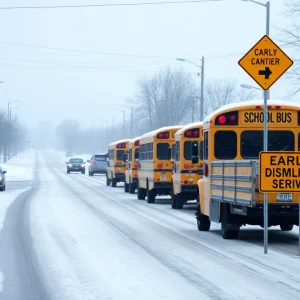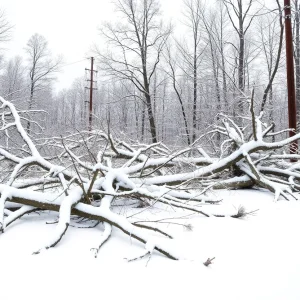Columbia, SC – Utility Executives Seek Legislative Support
In an unexpected meeting last Thursday, top executives from major power companies in South Carolina came together to discuss pressing energy issues with a special Senate committee. The executives from Santee Cooper, Dominion Energy, and Duke Energy met with lawmakers to seek quicker approvals for building new power plants amidst concerns about a looming energy crisis in the state.
Utility Representatives and Legislators in Discussion
The atmosphere in the Senate room was surprisingly friendly. Senate Republican Leader Shane Massey kicked off the proceedings with jokes, and even invited the utility executives to sit closer to the lawmakers to create a more informal setting. The exchange was characterized by first-name terms and light banter, which made it feel somewhat like a casual meeting rather than a serious legislative discussion.
Significantly, this gathering of lawmakers came at a crucial time. Earlier this year, the House of Representatives had quickly passed a bill that offered utilities increased regulatory relief, raising concerns among consumer advocacy groups. However, the Senate had put the brakes on this initiative. Responding to the needs for a thorough evaluation, Massey proposed to hold special hearings over the summer and fall to ensure all voices were heard before moving forward.
The Motivation Behind Urgent Changes
Executives urged that South Carolina is facing an urgent need for additional energy generation capabilities. With the state experiencing some of the fastest population growth in the nation, these energy needs will only increase, especially with larger energy demands coming from new electric transportation and high-energy-consuming data centers.
In particular, Santee Cooper made a notable request, asking for authorization to join forces with Dominion to seek approval for a new natural gas plant in Canadys. This request was deemed reasonable, highlighting a growing consensus among lawmakers on the need for improved infrastructure to handle the increasing demands of consumers.
Consumer Protections Remain a Concern
Despite some of these suggestions being sensible, doubts linger about rolling back consumer protections that had previously been strengthened after the fallout from the failed V.C. Summer nuclear project. This significant project had left South Carolina ratepayers in a difficult position and served as a cautionary tale about what can happen when regulatory measures are loosened.
There is general agreement among lawmakers that while the need for additional energy resources is urgent, it cannot come at the expense of consumer protections. As South Carolina operates under a legislated monopoly system for its utilities, any changes in oversight and rate approvals should not undermine consumer rights to fair practices and prices.
Future Considerations
One of the standout discussions during the meeting was about the implications of attracting energy-intensive industries such as data centers to the state. Although these centers can contribute to economic development, there are growing calls for a comprehensive review of how South Carolina incentivizes these enterprises, particularly when they consume vast amounts of energy.
Lawmakers are debating whether these businesses should receive preference in terms of lower energy rates compared to everyday residential customers—an issue that could lead to significant economic disparity among citizens.
Next Steps
Moving forward, the special committee plans to conduct thorough hearings where all aspects of energy consumption, generation, regulation, and consumer protection will be scrutinized. These discussions will be critical as they shape the future of energy policy in South Carolina. The urgency of the energy crisis won’t go away, but how the state approaches solutions will be carefully watched by constituents and consumer advocacy groups alike.
As the process unfolds, it will be paramount for South Carolina’s legislators to walk the tightrope of expanding energy capacity while ensuring that consumer protections remain intact, setting a strong precedent for how utilities operate within the state.




























